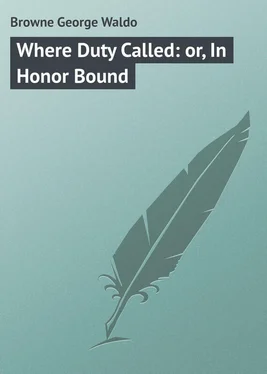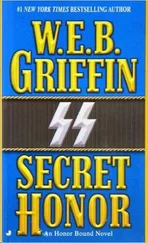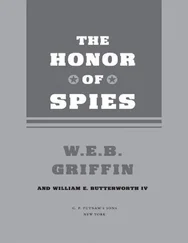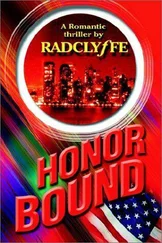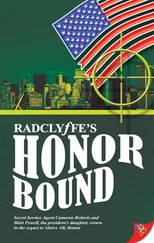George Browne - Where Duty Called - or, In Honor Bound
Здесь есть возможность читать онлайн «George Browne - Where Duty Called - or, In Honor Bound» — ознакомительный отрывок электронной книги совершенно бесплатно, а после прочтения отрывка купить полную версию. В некоторых случаях можно слушать аудио, скачать через торрент в формате fb2 и присутствует краткое содержание. Жанр: Прочие приключения, foreign_prose, на английском языке. Описание произведения, (предисловие) а так же отзывы посетителей доступны на портале библиотеки ЛибКат.
- Название:Where Duty Called: or, In Honor Bound
- Автор:
- Жанр:
- Год:неизвестен
- ISBN:нет данных
- Рейтинг книги:5 / 5. Голосов: 1
-
Избранное:Добавить в избранное
- Отзывы:
-
Ваша оценка:
- 100
- 1
- 2
- 3
- 4
- 5
Where Duty Called: or, In Honor Bound: краткое содержание, описание и аннотация
Предлагаем к чтению аннотацию, описание, краткое содержание или предисловие (зависит от того, что написал сам автор книги «Where Duty Called: or, In Honor Bound»). Если вы не нашли необходимую информацию о книге — напишите в комментариях, мы постараемся отыскать её.
Where Duty Called: or, In Honor Bound — читать онлайн ознакомительный отрывок
Ниже представлен текст книги, разбитый по страницам. Система сохранения места последней прочитанной страницы, позволяет с удобством читать онлайн бесплатно книгу «Where Duty Called: or, In Honor Bound», без необходимости каждый раз заново искать на чём Вы остановились. Поставьте закладку, и сможете в любой момент перейти на страницу, на которой закончили чтение.
Интервал:
Закладка:
"With small chance of reaching Caracas for a long time, if at all," added Ronie.
"How came England to allow such a vessel to leave her port?" asked Harrie.
"She must have been deceived as to her real character. Thinking she was a Colombian ship, and being on peaceful terms with that republic, she had no business to stop her. 1 1 Jack hit nearer the truth than he realized at the time. The Ban Righ had, in fact, awakened the suspicions of the English authorities, and the attention of the custom officers was directed to her by the placing of a searchlight on her foremast. An examination disclosed the fact that parts of guns and gun-mountings had been stowed away below deck, where passages had been cut to allow the crew to move about with facility. She was released and permitted to leave port because the Colombian official in London claimed that she was being fitted out for the service of his government. Sailing ostensibly for Colon, she called at Antwerp, where she was loaded with 175 tons of Mausers and 180 tons of ammunition, besides field guns, billed as "hardware, musical instruments and kettledrums." She also took on here a French artillery captain, a doctor, and two sergeants. The guns were mounted before she reached Martinique, and while there a sham sale was made. So it will be seen that Jack and the young engineers had ample reason for mistrusting the vessel whose career reads like a chapter from romance rather than the actual history of a ship that, possibly, did more to foment international disputes concerning the Venezuelan war than anything else. – AUTHOR.
Hi! what have we here?"
Jack's abrupt question was called forth by the sudden appearance almost by his side of a tall, slender youth, whose tawny skin and dark features proclaimed that he belonged to the mixed blood of the South American people. He had risen from the midst of a coil of rope, and in such close proximity that it was evident he had overheard what had been said. The three Americans realized their situation, though the opening speech of the young stranger reassured them.
"Señors speak very indiscreetly," he said, "of affairs which they must know bode them ill, in case their words reach the ears of others."
"Who are you?" demanded Jack, who was the first to speak. He remembered having seen this youth among the men on board, but had not given him any particular notice, although he noticed that he presented an appearance that showed he did not belong to the class of common sailors, while dressed no better than the poorest. There was an air of superiority about him which they did not possess.
"It is not always well for one to be too outspoken to strangers," he answered, glancing cautiously about as he said the words. "Even coils of rope have ears," he added, significantly.
"You overheard what we said?" queried Jack, who continued to act as spokesman for the party.
" Si, señor . I could not help hearing some of it, though you did speak in a low tone. My ears are very keen, and not every one would have heard the little I did."
"It is not well for one to repeat what one hears, sometimes," said Jack, by way of reply.
"I have a mind as well as ears, señors," replied the youth. "While I can see as well as I can hear, I can think for both eyes and ears. You are not satisfied with the appearance of the Libertador ?"
"I judge you are pretty well informed as to our opinion," replied Jack, more vexed than he was willing to show that they should have been caught off their guard. "Listeners are not apt to hear any good of themselves, we are told."
"Had I been a spy," retorted the youth, with some animation, "I should have remained quietly in my concealment, and not shown my head at all, and most assuredly not when I was likely to hear that which was to prove the most important."
"Please explain, then, your motive in addressing us at all."
"Not here – not now," he answered. "When the Southern Cross appears in the sky, and the sharp-eyed, doubting Englishman at the head sleeps, I will meet one of you here, and make plain many things you do not understand."
"Why not meet all of us?" demanded Jack, suspiciously.
"Because one of you in conversation with me would create less suspicion than all of you would be likely to do. That is my only reason, señor."
"By the horn of rock – Gibraltar, if you please," exclaimed Professor Jack, "there is a bit of common sense in that. One of us will be here, if we find it convenient."
"Good, señor. Now, as we seem to be attracting attention, it may be well for us to separate. I will be on hand at the appointed time."
A moment later the unknown youth mingled with the motley crew, leaving our friends wondering what their meeting with him portended.
"He seems honest," declared Ronie.
"He must be half Spaniard, and the other is doubtless something worse, if that is possible," said Jack, who confessed that he had no liking for the South American races.
"Shall we accept his proposition?" asked Harrie. "I will confess I am curious to know what he has to tell."
"I do not understand what this disturbance between the countries means," said Ronie. "When foreign nations take a hand in the affair it would seem to show that something more serious than a civil revolt is likely to follow. There could not have been a suspicion of this outside preparation of war in the United States, or Colonel Marchand would have known of it. I do not see how this has gone on under the American eyes."
"It is probably due to the fact that these republics of South America are almost continually at war. Venezuela has had a stormy time of it from the very first. I think one of us had better listen to what this young Venezuelan has to say. He is evidently not in sympathy with the commander of this vessel."
"Who is working in the interest of Matos, the leader of the revolutionists?"
"As President Castro is at the head of the government, and the target for the fire of the whole world at this time."
It was finally decided that Harrie should meet the stranger at the appointed time, while Ronie and Jack were to remain nearby to lend their assistance in case the youth showed any signs of treachery. Having come to this decision, the three waited, as may be imagined, with considerable anxiety for the hour to come.
CHAPTER III.
THE YOUNG EXILE
The night proved clear and beautiful, a typical southern evening most fitly closing a day that had been flawless. All the afternoon the sky and sea, so nearly of the same cerulean hue that where they met they matched so perfectly as to seem a curtain of the same texture, had appeared to vie with each other in their placidity, while now the stars overhead were scarcely brighter than their reflections in the waters below. On the rim of the distant horizon shone with a soft luster the glorious radii of the gem of the Antipodes, the Southern Cross.
Harrie was promptly on hand to keep his meeting with the strange youth, but no earlier than the other, who greeted him in his musical voice:
"Señor is in good season. It is well, for our time cannot be long in which to talk. While we speak let us walk slowly back and forth, arm in arm, so we shall not be overheard."
He spoke in a low tone, a little above a whisper, while Harrie allowed his arm to be drawn into the other's grasp, though he was very watchful not to be taken unawares in case of an attack on him.
"In the first place," said the young Venezuelan, "I judge señor is anxious to know who it is who has placed himself in his way. But before that I would speak of the ship which is at this moment bearing us whither we fain would not go."
"What about the ship?" asked Harrie, as he hesitated. "What have you to say of that?"
Lowering his voice so our hero could barely catch his words, he said:
Читать дальшеИнтервал:
Закладка:
Похожие книги на «Where Duty Called: or, In Honor Bound»
Представляем Вашему вниманию похожие книги на «Where Duty Called: or, In Honor Bound» списком для выбора. Мы отобрали схожую по названию и смыслу литературу в надежде предоставить читателям больше вариантов отыскать новые, интересные, ещё непрочитанные произведения.
Обсуждение, отзывы о книге «Where Duty Called: or, In Honor Bound» и просто собственные мнения читателей. Оставьте ваши комментарии, напишите, что Вы думаете о произведении, его смысле или главных героях. Укажите что конкретно понравилось, а что нет, и почему Вы так считаете.
